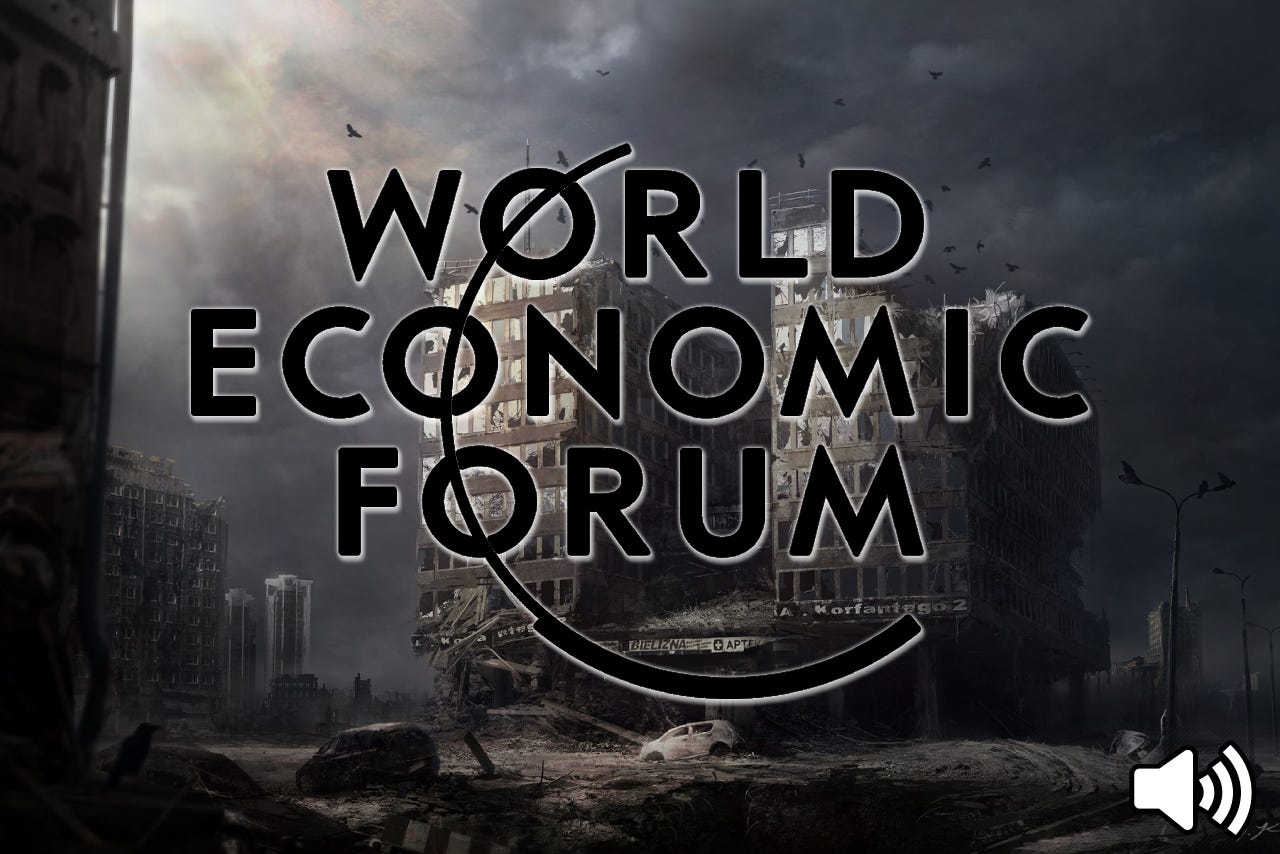The grand experiment of globalism, long championed by unelected elites and their sprawling bureaucratic empires, is unraveling. The World Economic Forum (WEF), that self-anointed arbiter of humanity’s future, has spent decades peddling a vision of interconnected economies, homogenized cultures, and centralized control under the guise of progress. But the cracks in their utopian facade are now impossible to ignore.
From the rejection of their “woke capitalism” to the resurgence of nationalism and individualism, societies worldwide are pushing back against the globalist agenda. This shift, far from a mere pendulum swing, signals a profound awakening—one that prioritizes sovereignty, self-determination, and the individual over the collectivist dogma of globalist institutions.
The WEF’s vision, cloaked in buzzwords like “sustainability” and “inclusivity,” has always been about control. Their annual Davos gatherings, where billionaires and bureaucrats sip champagne while plotting the world’s future, have produced little more than a bloated, top-down framework that erodes local autonomy.
According to a ZeroHedge article from August 2025, the globalists are now scrambling to “rebrand” their agenda after repeated setbacks. Their so-called “Great Reset” has collided with reality: populist uprisings, economic stagnation, and growing distrust in institutions like the WEF, which many now see as a cabal of out-of-touch elites. The article notes that their pivot to “inclusive capitalism” is a desperate attempt to salvage credibility, but the public isn’t buying it. People are tired of being told that their traditions, borders, and values must be sacrificed for a nebulous “global good.”
This backlash isn’t just anecdotal; it’s structural. The globalist push for open borders, free trade absolutism, and supranational governance has yielded diminishing returns. Look at the European Union, once a poster child for globalist integration. Its bureaucratic overreach, from dictating environmental regulations to imposing migration quotas, has fueled resentment across member states. Brexit was the first major domino to fall, followed by rising nationalist movements in countries like Italy, Hungary, and Poland. These nations aren’t rejecting cooperation; they’re rejecting the erasure of their distinct identities.
As Capwolf’s analysis points out, globalism’s one-size-fits-all approach ignores cultural and economic diversity, creating friction that’s now boiling over. The article highlights how supply chain disruptions and energy crises—exacerbated by globalist policies prioritizing interdependence over self-sufficiency—have exposed the fragility of their model.
Meanwhile, the re-embrace of individualism and nationalism is quietly gaining momentum. This isn’t the cartoonish caricature of flag-waving jingoism that globalists love to mock. It’s a grounded recognition that nations thrive when they prioritize their own citizens, economies, and values.
The United States, for instance, has seen a revival of “America First” policies, from tariffs on foreign goods to energy independence initiatives. These moves aren’t about isolationism; they’re about reclaiming agency in a world where globalist institutions have too often dictated terms. Similarly, countries like India and Argentina are doubling down on national interests, from protecting local industries to asserting cultural pride.
This shift reflects a broader truth: people want to feel connected to their communities, not subsumed into a faceless global collective.
The globalist agenda’s failures are most evident in its economic fallout. The WEF’s obsession with “stakeholder capitalism” has enriched corporations while hollowing out the middle class. ZeroHedge notes that the push for ESG (Environmental, Social, Governance) criteria has alienated consumers and investors alike, who see through the performative virtue. Small businesses, the backbone of local economies, have been crushed under the weight of regulations designed to favor multinational conglomerates.
Meanwhile, the WEF’s climate mandates, which demand crippling energy transitions, have left nations like Germany and Spain grappling with soaring costs and unreliable grids. Capwolf’s deep dive underscores this, pointing out that globalist policies often prioritize ideological purity over practical outcomes, leaving ordinary people to bear the consequences.
This growing disillusionment is a cause for cautious celebration. Societies are rediscovering the value of self-reliance, from local food production and indigenous medicine sources to decentralized governance. The rise of digital platforms has empowered individuals to bypass traditional gatekeepers, whether it’s independent media challenging corporate narratives or small-scale entrepreneurs sidestepping global supply chains.
This isn’t a rejection of progress but a reclamation of it—one that honors the individual’s right to shape their own destiny. Nationalism, too, is shedding its stigma. It’s no longer about supremacy but about stewardship: protecting what makes each nation unique, from its history to its economic priorities.
But the globalists won’t go quietly. Their rebranding efforts, as both ZeroHedge and Capwolf note, are a sign of desperation, not defeat. They’re doubling down on narratives that paint dissent as backwardness, hoping to shame populations into compliance. But the tide is turning.
People are waking up to the reality that globalism, with its promises of equality and prosperity, often delivers neither. Instead, it paves the way for something far darker; something intrinsically wicked: socialism, followed by oligarchic authoritarianism. When power is concentrated in unaccountable institutions like the WEF, it creates a slippery slope where centralized planning morphs into control, and control into tyranny.
A world where a handful of elites dictate the terms of existence—economic, cultural, and political—is not a utopia but a dystopia. The rejection of globalism is not just a trend; it’s a necessary course correction to preserve freedom and self-determination for generations to come.
Then, when we return, our segment on America’s Third Watch, broadcast nationally from our flagship station WGUL AM860 & FM93.7 in Tampa, Florida.
In Closing…
And that’s a wrap on today’s episode!
We’ve spent some time celebrating the crumbling facade of globalism, from the WEF’s desperate rebranding to the resurgence of individualism and nationalism. We are witnessing societies reclaiming their sovereignty, rejecting the one-size-fits-all dogma that’s left economies fragile and cultures eroded. This shift isn’t just a trend—it’s a rebellion against centralized control.
But let’s be clear: globalists will not go quietly into the night, and globalism’s path always leads to socialism, then oligarchic authoritarianism, where elites rule unchecked.
Subscribe, share, and stay vigilant and informed—because the future belongs to those who dare to stand apart.
Until next time…


















